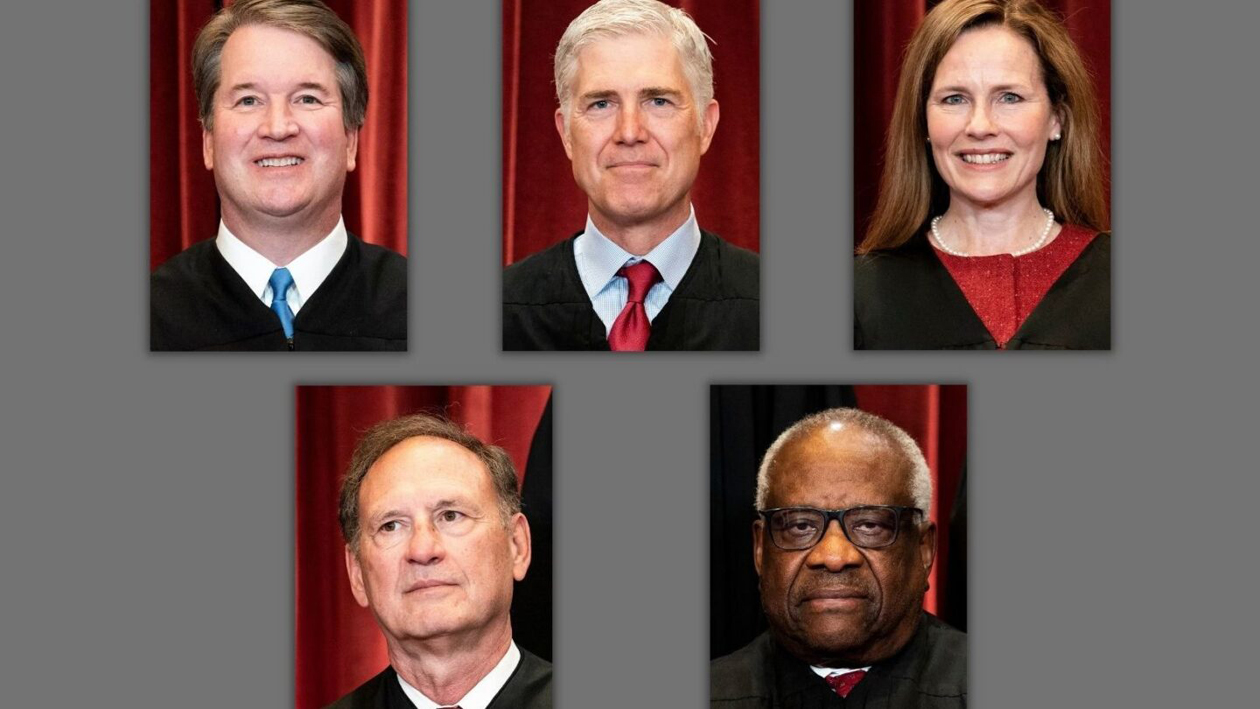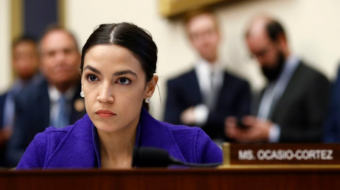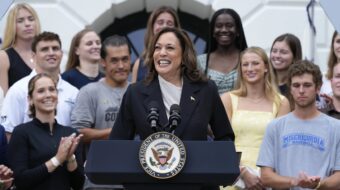
WASHINGTON—On Dec. 7, 1941, “a date which will live in infamy,” as FDR put it, the Empire of Japan attacked the United States at Pearl Harbor. On Dec. 7, 2022, the empire of the right-wing attacks the United States election system—at the Supreme Court.
That’s the day when the right-wingers, seizing on two small phrases from the U.S. Constitution, argue to the justices that state legislatures, and ONLY state legislatures, can set election rules for every office from the presidency on down.
If right-wing state lawmakers decree that only their followers can vote for president, governors can’t veto that edict. If those lawmakers mandate that people of color won’t have their ballots counted, state and federal judges can’t overrule them.
And, most importantly, if the state’s voters cast most of their ballots for a non-right-wing presidential candidate, the right-wing lawmakers can just plain disregard the results and send in a set of electors pledged to their favorite, instead.
Progressives and the Biden administration are fighting this “independent state legislature” theory and its impacts in oral arguments to the justices on Dec. 7, in Moore v Harper. Republicans, led by North Carolina House Speaker Timothy Moore, back it. Rebecca Harper, the ACLU, and their allies oppose it.
Except for the National Education Association and Workers Circle—who both joined a “friend of the court” brief–unions apparently did not weigh in on the case before the Supreme Court’s argument session. It’s nonetheless important to workers.
That’s because if the Republican-named right-wing High Court majority agrees with the scheme the rightists push, conservative (or worse) control of government is virtually guaranteed, legal experts say.
And, of course, while piously proclaiming they don’t intend such consequences, the national Republican Party and its political campaign committees strongly support the theory.
At issue is how the theory stretches two small constitutional phrases that govern elections. The first, in Article I, says “The times, places and manner for the election of senators and representatives shall be prescribed in each state by the legislature thereof,” though Congress can change the rules, except for senatorial elections. Note the rules do not cover who can vote, or have their votes counted.
The second phrase, which will be the crux of the argument, is in Article II and involves the presidency: “Each state shall appoint, in such manner as the legislature thereof may direct, a number of electors, equal to the whole number of senators and representatives to which a state may be entitled” in Congress. Period. End of paragraph. No ifs, ands, or buts about it.
No role for governors, or secretaries of state, or elections boards, or state or federal judges. No consideration of the Voting Rights Act, either. With the Republican-named court majority using “originalism” to justify whatever they decide, those “original” phrases are appealing.
“Independent state legislatures” pose danger
This leaves the Biden administration and “friends of the court” briefs, including from the Brennan Center for Justice and the Leadership Conference on Civil Rights—whose brief the unions joined—striving to prove just how dangerous “independent state legislatures” are.
“The distinction between a government with limited and unlimited powers is abolished if those limits do not confine the persons on whom they are imposed,” the Leadership Conference, NEA, Workers Circle, and others wrote in their brief.
“Historically, state constitutions provide an additional layer of protection for plaintiffs, including voters of color, challenging discriminatory voting laws. That is a good thing,” as the Supreme Court wrote in a prior case, they point out.
The right-wing’s “independent state legislatures” theory eliminates that extra protection, leaving voters vulnerable to all sorts of discrimination—including the discrimination of having their votes nullified, left uncounted, or disregarded completely, the brief adds. And the right to vote is fundamental to all other rights, it says, quoting Dr. Martin Luther King Jr.
“In their constrained reading of the Elections Clause” of the Constitution, petitioners—the right-wingers and the Republicans—”argue state courts should be rendered powerless and state constitutions rendered ineffective because only state legislatures should address the times, places, and manner of voting in congressional elections.
“Petitioners would block voters of color from a critical avenue and a critical weapon—their own states’ constitutions—to vindicate their right to vote. State courts and state law…prevent voting rights complaints from echoing into a void.”
“Under their theory, a state could not act to apply its constitution to or amend its constitution to secure greater protections for voting rights in federal elections, even if that amendment was ratified in strict accordance with state constitutional law. Such a result is contrary to established precedent” stretching back to a case from Ohio decided in 1916.
But precedent may weigh little with the five-justice right-wing bloc. Led by Justices Clarence Thomas and Samuel Alito, that bloc has shown itself very willing to toss precedents out the window when they conflict with rightist dogma.
Their most recent controversial repudiation of precedent was, of course, in this summer’s Dobbs decision, which nullified the constitutional right to abortion. But five years before that, the same bloc also tossed a 41-year-old pro-union precedent.
Justice Alito wrote that Janus ruling, as well as Dobbs. By tossing that precedent, he ensured free riders among all state and local government workers nationally can use union protections and services without paying one red cent for them. “Defunding the left” as one top right-winger chortled in The Guardian.
If the right-wingers win this argument, they wouldn’t be defunding the left, they’d be de-voting the left, and de-voting workers, left, right, or center.












Comments